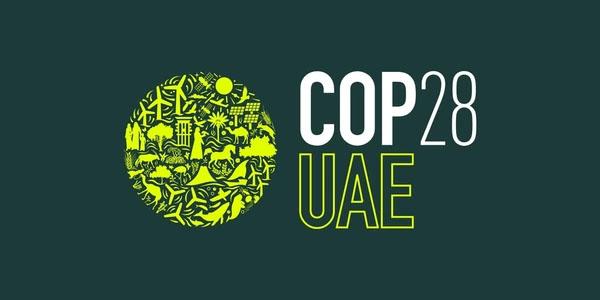
EUSEW 2023 and COP28 finally propelled youth engagement in the energy transition. COP28 featured the largest initiative to date to involve young individuals in the COP process. Yet, the current energy crisis demands swift action. Will the youth revolutionise the traditional energy industry to secure sustainable energy for all?
The UN Climate Change Conference has the responsibility of assessing global progress in climate action. And COP28 must be praised for showcasing significant strides, particularly in youth engagement, education, technology, and overall inclusivity.
COP28 for youth: decision-makers in the making
Finally! COP28 marked a turning point for youth involvement. It established the role of the Presidency Youth Climate Champion and introduced the first-ever Youth Stocktake. It also launched the COP28 Youth Climate Delegates Program to ensure fresh perspectives and unconventional solutions were accounted for in the negotiation process. To further assist young participants, COP28 offered the use of first generative AI for climate change data. Finally, indeed, youth participation surged.
COP28 for education: green, energet(h)ic, and cool
COP28 also put education very high in the agenda. The ‘Green Education Hub’ is the first ever dedicated pavilion, highlighting the pivotal role education plays in creating awareness and fostering innovation to address climate change. Efforts to encourage environmental careers, especially in renewable energy, were underscored, with initiatives like the Energy Transition Careers Compass aiming to bridge skills gaps.
Promoting environmental careers as high-demand, well-paid, and flexible became a priority, showcasing their tangible impact on the planet and offering career flexibility. Predictions of one million solar industry jobs in Europe by 2025 further emphasised the sector’s potential.
Meeting the growing demand for climate action also requires fast-tracked technological transfer. A proposed climate exchange program could facilitate global knowledge sharing, attract skilled professionals, and drive collaboration, leading to innovative technologies, improved policies, and effective mitigation strategies.
COP28 for renewables and ICT: breaking the gaps in industrial commitment
The Global Stocktake also finally acknowledged the need to transition from fossil fuels, with 122 countries committing to triple global renewable energy capacity by 2030. The ICT sector also stepped up for the very first time, delivering corporate agreements to reduce emissions and e-waste regulation through the ITU Green Digital Action.
But transitioning to clean-tech solutions also necessitates attention to materials. Integrating AI, simulation, quantum computing, and machine learning can accelerate progress to diversify material sourcing, especially in Europe, to restore and ensure industrial competitiveness and green tech availability worldwide. Youth is uniquely positioned to innovate and deliver with the connections, will and digital skills that will allow us to understand and build new technologies.
To this end, also addressing uncomfortable questions such as around intellectual property should also be further emphasised within COP processes to allow for the interoperability of critical technologies. Multilateral funds to acquire intellectual property rights and climate technologies must be sought, yet carefully avoiding over-relaxing green tech IP rights, which could encourage reliance on secrecy.
COP28 for all: bridging science, creativity, and innovation
COP28 ensures the importance of multilateral discussions at a time of growing geopolitical tensions. It brought together 85,000 diverse voices to enrich the discussions and hold decision-makers accountable. But further addressing critical topics and make sustainable energy discussions more accessible involves bridging the gap between science and creativity. For this, the Young Energy Ambassadors will work to make sure the EU Sustainable Energy Week becomes a catalyst of such efforts. Such events are becoming catalysers of knowledge sharing and policy ideation. With events such as the world-café style cocreation workshop, the 30 selected young energy ambassadors from 22 countries had the chance to engage in a productive session with think tanks and EU representatives where several ideas were proposed to shape the clean energy transition. The results, visible online (https://interactive.eusew.eu/eyed/) in an infographic where then presented on stage during the Youth Energy Day.
Recommended links
- https://www.carbonbrief.org/analysis-which-countries-have-sent-the-most-delegates-to-cop28/
- https://www2.deloitte.com/content/dam/Deloitte/us/Documents/quantum-computing-climate-change-2023.pdf
- https://doi.org/10.1016/j.respol.2023.104819
- https://gem-report-2023.unesco.org/
- https://napglobalnetwork.org/wp-content/uploads/2023/09/napgn-en-2023-public-engagement-on-climate-change-adaptation.pdf
- https://www.ipcc.ch/site/assets/uploads/2017/08/Climate-Outreach-IPCC-communications-handbook.pdf
- https://www.ecowatch.com/cop28-renewable-energy-goals.html
- https://www.weforum.org/agenda/2023/11/energy-efficiency-cop28-renewables/
About the authors
Giorgia Epicoco is a social and environmental sustainability expert working at the intersection of technological development for the advancement of the energy transition.
Livia Kalossaka is a PhD-trained materials scientist and EU Young Energy Champion. Livia is deeply passionate about driving sustainable innovation and empowering young people to take action.
Margarita Samsonova is an environmental content creator and founder of Behind the Greens Media – a sustainability & content creation media agency that focuses on showcasing compelling nature’s solutions stories.
Disclaimer: This article is a contribution from a partner. All rights reserved.
Neither the European Commission nor any person acting on behalf of the Commission is responsible for the use that might be made of the information in the article. The opinions expressed are those of the author(s) only and should not be considered as representative of the European Commission’s official position.
Details
- Publication date
- 25 January 2024
- Author
- European Climate, Infrastructure and Environment Executive Agency
